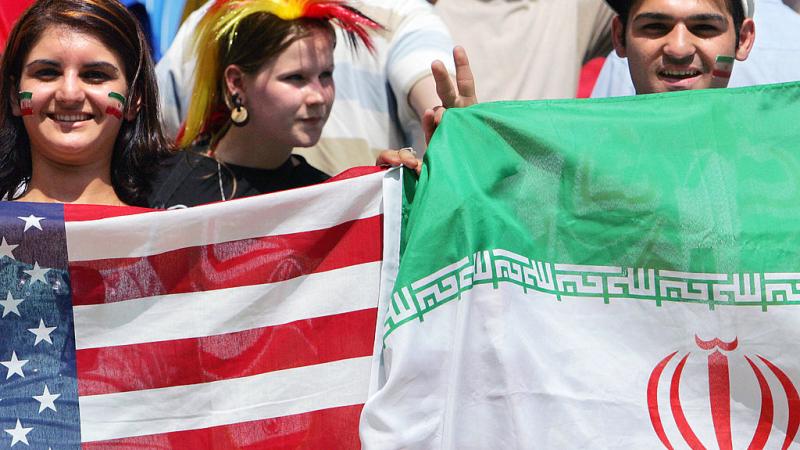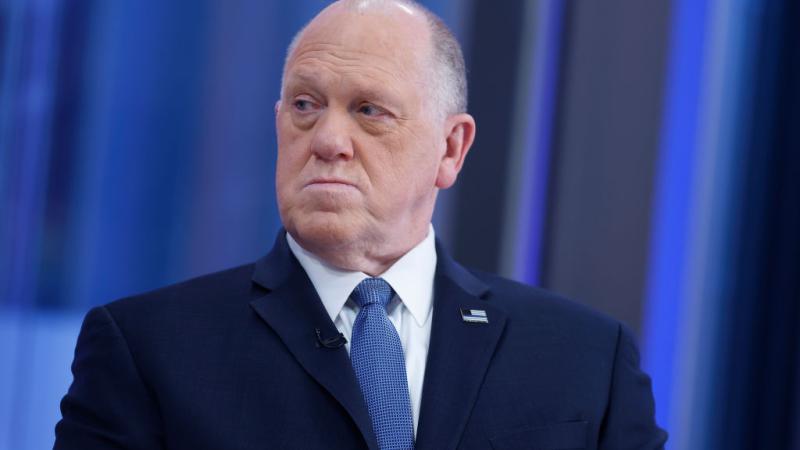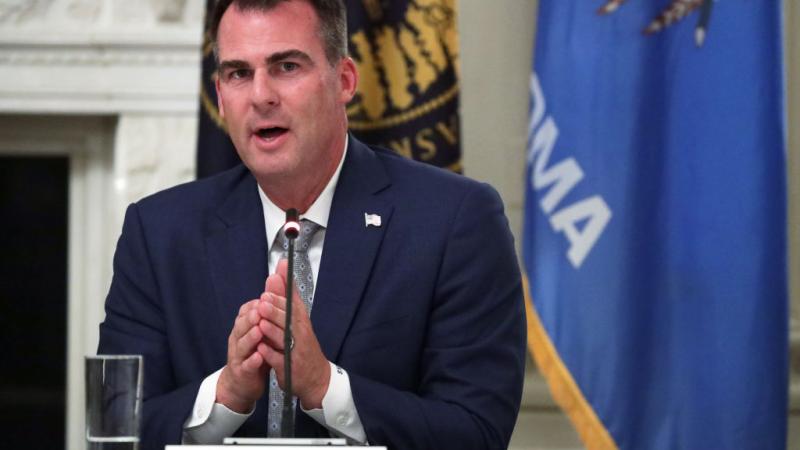Continued attacks by Iran-backed Houthis a stark warning that Biden/Harris policy continues to fail
Experts say that the Biden/Harris Administration’s operation to combat the group is failing to actual deter the attacks or its Iranian backers.
More than 8 months after the Biden administration announced a mission to stop the Yemen-based Houthi’s attacks on shipping vessels in the Red Sea and Gulf of Aden, the strategy has failed to deter further strikes. One Navy commander who participated in the operation said high command was reluctant to take a more aggressive posture against the group.
Currently, a Greek-flagged oil vessel remains ablaze in the Red Sea after it was repeatedly attacked by the Houthis at it attempted to transit the area. The burning ship and its cargo of 150,000 tons of crude oil pose a massive environmental threat and serves as a stark reminder that the goal of the Biden administration’s operation as not been achieved. For comparison's sake, the notorious 1989 Exxon Valdez disaster released 35,000 ton of oil, less than half that amount.
The core goals of the Prosperity Guardian Mission are to restore “freedom of navigation” and bolster “regional security and prosperity,” but the rear admiral who commanded one of the carrier strike groups that participated in the operation said the military high command did not want to implement “more aggressive” measures to end the Houthi threat.
Rear Admiral Marc Miguez, the commander who led the Dwight D. Eisenhower Carrier Strike Group’s deployment when it participated in Prosperity Guardian told YouTube military commentator Ward Carroll Monday that U.S. high command was reluctant to employ more aggressive strategies against the Houthi’s attacks and were taking into consideration Iran’s potential responses.
He said these more aggressive measures, as well as a more comprehensive strategy, would likely be required to end the threat.
"There are definite strategies that were put forward, but our National Command Authority decided that those — I would call more aggressive postures and more aggressive strikes — was not something we wanted to challenge,” Miguez said in an interview published Monday.
“We all know Iranian-backed groups like the Houthis, where that threat's emanating from," he said. "That is the calculus that's handled at echelon zero, at the National Command Authority, at NSA, and everybody else.”
"Those are things that I don't dabble in,” Miguez added.
"Moving forward, we are going to have to continue to deal with this. It will be up to our National Command Authority to probably be more aggressive with out strike groups and all of our assets, not just Navy,” he said. “This is a whole of government approach, its going to take the dime, diplomatic, you know, information, its going to take the military, yes, but it’s also going to take economic pressure as well.”
Despite the fact that the allied forces—primarily the United States and Britain under Prosperity Guardian—conducted strikes on Houthi targets earlier this year, Miguez said he saw that those were effective in causing a temporary “downtick in activity.” He confirmed in the interview that his forces only carried out 7 strikes on the terror group.
“We were definitely degrading their capability, uh, we were focused on normal military targets, storage units, you know, stuff like that where we knew we had pretty good intelligence of where they were keeping things…and that was primarily our focus of hitting those things,” he said.
Retired Rear Admiral Mark Montgomery, now a Senior Fellow at the Washington, D.C.-based think tank Foundation for Defense of Democracies, told Just the News in an email that the Houthi’s recent attack on the Greek oil vessel is “not indicative of success or failure” of the mission alone, but that “the fact that Houthis attacks are continuing some 6 months after the US Navy and USAF began to both defend assets and conduct limited strikes in Yemen indicates that deterrence is not working.”
Montgomery agreed with Miguez, that more aggressive actions would be necessary to actually deter both the Houthis and their backer, Iran.
“The US clearly needs to conduct more aggressive actions—to include imposing costs on Iran for supplying and supporting the Houthis—until this happens these Houthi attacks will continue. So yes the Biden administration is not pursuing an effective deterrence strategy against the Houthi, and by extension Iranian, attacks,” he added.
The Defense Department did not respond to a request for comment from Just the News.
Criticisms of the Biden/Harris administration’s handling of the Houthi crisis, as well as the regional instigator, Iran, have also come from former Trump administration officials and the former president himself as the 2024 election fast approaches. GOP nominee Donald Trump has sought to draw a contrast with Biden’s foreign policy positions before the president dropped out of the race.
“Weak Joe Biden is only now scrambling to fix the DISASTER he created in the Middle East because he’s afraid of losing the Election,” Trump posted to his social media platform, Truth Social earlier this summer.
“He is an incompetent person who chose to fund Iranian Terror with our Tax Dollars. We HAD Peace in the Middle East, and we can have it again, but it won’t be with Joe Biden in office,” he added.
Since Biden dropped out of the race, the Trump campaign has highlighted Vice President Kamala Harris’ confirmation that she was the last in the room during major national security decisions, including the chaotic withdrawal from Afghanistan.
Shortly after his inauguration, President Biden worked to reverse several of Donald Trump’s key policies regarding Iran and its group of Middle East proxies in an effort to both bring Iran back to the negotiating table for the defunct nuclear deal and end U.S. involvement in several conflicts.
Restoring Iran’s compliance with the Obama-era nuclear deal is a centerpiece of the Biden administration’s plan for the region. To incentivize this, Biden has tried to reverse Trump’s “maximum pressure” campaign against the Islamic regime.
For example, Biden has worked to limit the impact of sanctions on the Iranian regime, including negotiating a $6 billion funds for prisoners exchange. In total, the Biden/Harris administration has freed up an estimated $70 billion in funds for Iran, Just the News previously reported.
In Yemen specifically, Biden ended the United States’ support for any offensive operations for allies in the country. In his predecessor’s administration, the United States supported a coalition led by Saudi Arabia that supported the Yemeni government against the Houthi rebels in the country’s civil war.
“The war in Yemen must end,” President Biden said in a February 2021 foreign policy speech following his inauguration. That same month, his administration revoked the terrorist designation of the Houthi group as part of this effort, citing humanitarian conditions in the country.
Yet, after the group began its all-out attacks on global shipping in response to Israel’s war in Gaza, Biden walked back this move and re-listed the terror group.
Former National Security Council Chief of Staff under President Trump, Fred Fleitz, says the Biden administration’s policies are “promoting global instability” and have an impact beyond Yemen and the Houthis.
“There's really been a deterioration in American deterrence, and I think it is now Israeli deterrence that is promoting stability in the Middle East, and when all our pressure is on Israel to de-escalate and to make more concessions to get a peace agreement, you know, there's something wrong here,” former National Security Council Chief of Staff Fred Fleitz told the “John Solomon Reports” podcast Monday.
The Facts Inside Our Reporter's Notebook
Links
- repeatedly attacked by the Houthis
- 1989 Exxon Valdez disaster
- less than half that amount
- the Prosperity Guardian Mission
- told YouTube military commentator
- conducted strikes
- posted to his social media platform
- the last in the room
- freed up an estimated $70 billion
- his administration revoked the terrorist designation
- walked back this move
- John Solomon Reports













